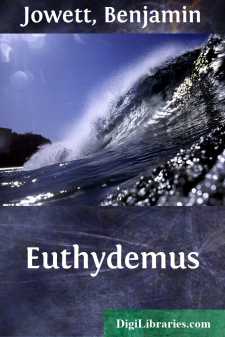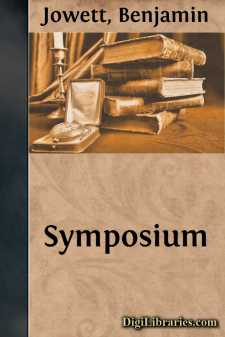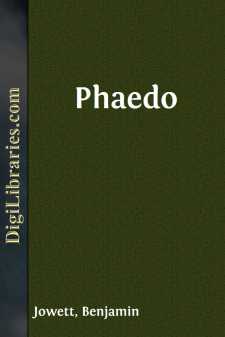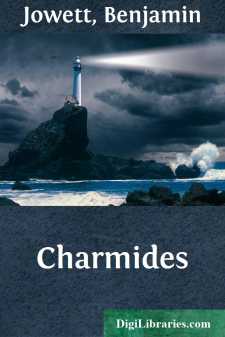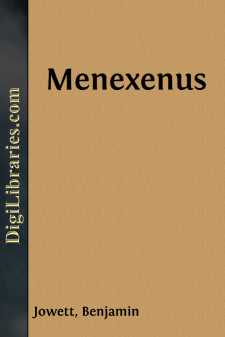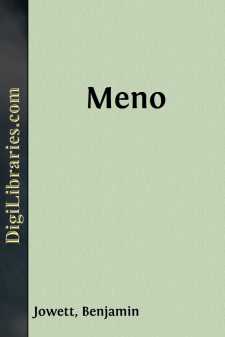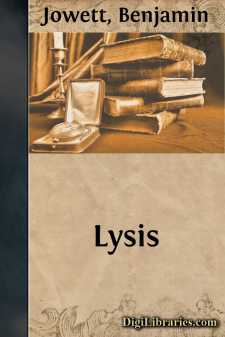Categories
- Antiques & Collectibles 13
- Architecture 36
- Art 48
- Bibles 22
- Biography & Autobiography 813
- Body, Mind & Spirit 142
- Business & Economics 28
- Children's Books 17
- Children's Fiction 14
- Computers 4
- Cooking 94
- Crafts & Hobbies 4
- Drama 346
- Education 46
- Family & Relationships 57
- Fiction 11829
- Games 19
- Gardening 17
- Health & Fitness 34
- History 1377
- House & Home 1
- Humor 147
- Juvenile Fiction 1873
- Juvenile Nonfiction 202
- Language Arts & Disciplines 88
- Law 16
- Literary Collections 686
- Literary Criticism 179
- Mathematics 13
- Medical 41
- Music 40
- Nature 179
- Non-Classifiable 1768
- Performing Arts 7
- Periodicals 1453
- Philosophy 64
- Photography 2
- Poetry 896
- Political Science 203
- Psychology 42
- Reference 154
- Religion 513
- Science 126
- Self-Help 84
- Social Science 81
- Sports & Recreation 34
- Study Aids 3
- Technology & Engineering 59
- Transportation 23
- Travel 463
- True Crime 29
Ion
by: Benjamin Jowett
Description:
Excerpt
INTRODUCTION.
The Ion is the shortest, or nearly the shortest, of all the writings which bear the name of Plato, and is not authenticated by any early external testimony. The grace and beauty of this little work supply the only, and perhaps a sufficient, proof of its genuineness. The plan is simple; the dramatic interest consists entirely in the contrast between the irony of Socrates and the transparent vanity and childlike enthusiasm of the rhapsode Ion. The theme of the Dialogue may possibly have been suggested by the passage of Xenophon's Memorabilia in which the rhapsodists are described by Euthydemus as 'very precise about the exact words of Homer, but very idiotic themselves.' (Compare Aristotle, Met.)
Ion the rhapsode has just come to Athens; he has been exhibiting in Epidaurus at the festival of Asclepius, and is intending to exhibit at the festival of the Panathenaea. Socrates admires and envies the rhapsode's art; for he is always well dressed and in good company—in the company of good poets and of Homer, who is the prince of them. In the course of conversation the admission is elicited from Ion that his skill is restricted to Homer, and that he knows nothing of inferior poets, such as Hesiod and Archilochus;—he brightens up and is wide awake when Homer is being recited, but is apt to go to sleep at the recitations of any other poet. 'And yet, surely, he who knows the superior ought to know the inferior also;—he who can judge of the good speaker is able to judge of the bad. And poetry is a whole; and he who judges of poetry by rules of art ought to be able to judge of all poetry.' This is confirmed by the analogy of sculpture, painting, flute-playing, and the other arts. The argument is at last brought home to the mind of Ion, who asks how this contradiction is to be solved. The solution given by Socrates is as follows:—
The rhapsode is not guided by rules of art, but is an inspired person who derives a mysterious power from the poet; and the poet, in like manner, is inspired by the God. The poets and their interpreters may be compared to a chain of magnetic rings suspended from one another, and from a magnet. The magnet is the Muse, and the ring which immediately follows is the poet himself; from him are suspended other poets; there is also a chain of rhapsodes and actors, who also hang from the Muses, but are let down at the side; and the last ring of all is the spectator. The poet is the inspired interpreter of the God, and this is the reason why some poets, like Homer, are restricted to a single theme, or, like Tynnichus, are famous for a single poem; and the rhapsode is the inspired interpreter of the poet, and for a similar reason some rhapsodes, like Ion, are the interpreters of single poets.
Ion is delighted at the notion of being inspired, and acknowledges that he is beside himself when he is performing;—his eyes rain tears and his hair stands on end. Socrates is of opinion that a man must be mad who behaves in this way at a festival when he is surrounded by his friends and there is nothing to trouble him....




